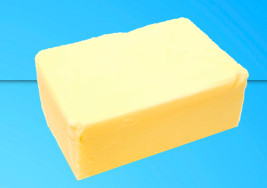
Nutritionist Megan Crockart previously discussed the different unsaturated oils (click here to read). Now here are some facts on the saturated fats, oils and margarine.
Margarine is made using vegetable oils and has traditionally been high in trans fatty acids due to the hydrogenation process in ensuring a solid yet spreadable texture. Studies show that this process has been changed to reduce the trans fatty acid content. When selecting a margarine, make sure it has next to no trans fats before purchasing. Look for wording such as non-hydrogenated and also the softer and more liquid it is the less trans fats it contains. Also consider the type of oil the margarine consists of before choosing this option. (Click here to read more about oils).
Coconut oil/palm oil are of course oils but they are actually the most saturated plant oils. Although a saturated fat they don’t contain cholesterol like animal saturated fats and can actually help lower cholesterol levels in the body. Coconut oil contains lauric acid which is a natural antibacterial, antiviral and antifungal so it helps the body target viruses and bacteria. Also has many benefits for use on the skin. Palm oil is very controversial due to the environmental impact and overuse of this product in more than just food products. There are some on the market that are certified as not causing deforestation and red palm oil is higher in antioxidants than regular palm oil. Look for this certification if you want to use palm oil, but if uncertain about the farming methods, just avoid all palm oil.
Butter is a saturated fat and can increase cholesterol in some people but generally it is made in a natural way with next to nothing added, particularly if you buy organic butter. So if you have a healthy lifestyle which includes regular exercise and do not have cholesterol or cardiovascular concerns, eating butter in moderation is a healthy option, plus its one of the most stable fats when used in cooking.
Ghee or clarified butter is one of the most heat stable oils especially for really high temperatures. Ghee has been used in India for thousands of years. It is made from butter with the milk solids having been removed (heating the butter and skimming the foam off the top). Its best to get organic ghee which has many health benefits ranging from healing of injuries to gastrointestinal inflammations. Containing butyric acid clarified butter also has antiviral and antibacterial properties.
Smoking points of fats and oils
|
Oil/Fat |
Smoke Point – Degrees Celsius |
| Avocado | 216 |
| Sesame | 177 |
| Olive | 210 |
| Canola | 190-232 |
| Butter | 121-149 |
| Clarified butter/Ghee | 252 |
| Sunflower (oleic rich) | 160 |
| Safflower (oleic rich) | 107 |
| Almond | 216 |
| Coconut Oil | 177 |
| Flaxseed | 107 |
| Sesame | 177 |
| Peanut | 160 |
| Rice Bran | 213 |
